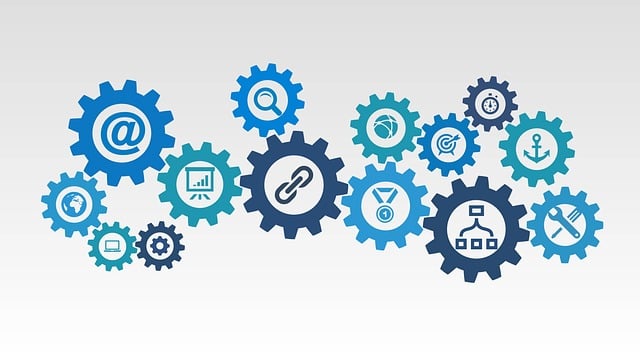Car repair scheduling faces challenges with manual methods, leading to inefficiencies and inaccurate workload predictions. AI systems offer a solution by optimizing appointment booking through advanced algorithms considering technician availability, vehicle types, and customer preferences. These models enhance forecasting, reduce wait times, and improve operational efficiency. Implementing AI scheduling in car repair businesses boosts efficiency and customer satisfaction by predicting demand patterns and optimizing staffing. To integrate AI, businesses should assess current processes, choose a suitable platform, train staff, ensure data accuracy, and regularly review performance.
In today’s digital age, vehicle service centers face unique challenges in managing appointments, from overwhelming customer demand to complex service scheduling. This article explores how AI systems for scheduling in car repair businesses can revolutionize operations. We’ll delve into the understanding of these challenges, examine how AI streamlines the process, and uncover the benefits and implementation strategies that can drive efficiency and growth for vehicle service centers.
- Understanding the Challenges of Car Repair Scheduling
- How AI Systems Can Streamline the Process
- Benefits and Implementation Strategies for Vehicle Service Centers
Understanding the Challenges of Car Repair Scheduling

Car repair scheduling can be a complex and demanding task for vehicle service centers, presenting several challenges that impact efficiency and customer satisfaction. Traditional methods often rely on manual appointment booking, which can lead to inefficiencies, double-bookings, and an inability to predict workload accurately. This not only causes inconvenience for customers but also hampers businesses’ ability to optimize their resources effectively.
AI systems for scheduling in car repair businesses offer a promising solution to these issues. By leveraging advanced algorithms, these AI models can streamline the appointment booking process, taking into account various factors such as technician availability, vehicle types requiring service, and customer preferences. This ensures more precise workload forecasting, reduces wait times, and enhances overall operational efficiency.
How AI Systems Can Streamline the Process

AI systems have revolutionized the way car repair businesses operate, particularly when it comes to scheduling and managing appointments. By implementing AI algorithms, service centers can streamline their processes, reducing manual effort and increasing efficiency. These intelligent systems can analyze historical data, predict customer behavior, and optimize appointment slots, ensuring that technicians are utilized effectively and clients wait minimal time periods.
Through natural language processing (NLP), AI chatbots can interact with customers, understand their needs, and schedule appointments based on real-time availability. This not only improves customer satisfaction but also allows for better resource allocation. Additionally, predictive analytics enabled by AI can anticipate service demands, helping businesses stay ahead of peak seasons and manage inventory more efficiently.
Benefits and Implementation Strategies for Vehicle Service Centers

Implementing AI systems for scheduling in car repair businesses offers numerous benefits, including increased efficiency and improved customer experience. These intelligent tools can streamline appointment booking, enabling centers to manage their resources more effectively. By analyzing historical data, AI algorithms predict demand patterns, allowing service centers to optimize staffing levels and ensure adequate coverage during peak times. This reduces wait times for customers and enhances overall operational fluency.
To integrate AI scheduling into vehicle service centers, businesses should start by assessing their current processes and identifying pain points. Next, choose a suitable AI platform or software that aligns with the center’s needs, whether it’s for simple appointment management or more complex task automation. Training staff to use the new system and ensuring data accuracy are vital steps in the implementation process. Regular reviews and updates will further optimize AI performance, making it an indispensable asset in the digital transformation of car repair businesses.
AI advertising solutions present a transformative opportunity for vehicle service centers to streamline their operations, particularly in car repair scheduling. By leveraging AI systems, these centers can automate time-consuming tasks, improve customer experience, and enhance overall efficiency. The benefits are clear: reduced wait times, optimized resource allocation, and targeted marketing that attracts new customers. Implementing AI for scheduling involves a strategic approach, from data collection to training models and integrating them into existing systems. With the right strategies in place, vehicle service centers can stay competitive, provide exceptional service, and thrive in today’s digital age.
